High Quality Dried Jujube For Sale
ACPFOOD is where you can buy high quality dried Jujube.
Since we purchase high quality products directly from farmers, we provide and sell bulk Ziziphus jujuba dried fruit with the best quality to wholesalers, retailers and manufacturers and you can buy it from us with the best price.
Ziziphus jujuba dried fruit wholesaler, supplier and exporter
To order this product, please contact us.
About Ziziphus Jujuba
Jujube is the fruit of a tree that reaches eight meters in height and has many varieties.
This tree has strong wood and its bark is red-brown and thick. Some species of jujube tree have thorns. The thorns of this tree stems are very sharp, strong, elongated, slightly crescent-shaped and the same color as the stems.
The leaves are slightly elongated, almond-shaped, and slightly thick, and grow alternately with very short petioles. The side of these leaves is jagged.
The flowers are very small and yellowish green and grow at the junction of the leaves and stems. Each flower has five triangular petals that are completely separate and grow in a regular pentagon.
Its fruit is small, fleshy, almost oval, and egg-shaped. Its flesh and skin is green at first. But after it is fully ripe, its skin is deep red and its flesh is cream color. It is wrinkled after drying. The taste of this fruit is sour at first. But after fully ripening, it becomes sweet and glazed. Jujube has a hard, small, elongated, brown core, which is pointed at both ends and attached to its flesh.
The best jujubes are fully ripe, large, fleshy, sweet and red.
Propagation of this tree is done by planting seeds, cutting or basal shoot and since this tree produces a lot of basal shoots, every year it is necessary to cut its basal shoots and clean the base of the tree in order to maintain the balance of the plant. Therefore, the most common and fastest way to reproduce it is through basal shoot. If you are going to plant the kernel of the fruit for the reasons of genetic research, it is better to break the hard outer layer of the kernel and plant it, but be careful not to damage the kernel. Usually, the seed germinates two years after planting.
Basal shoot can be planted in early or late autumn depending on different climates. The jujube tree can be planted at intervals of 6 x 6 meters, and since it grows very slow, it is possible to plant fast-growing and short-lived trees in the intervals of the jujube trees, so that in the first few years, when the jujube has not yet reached the age of exploitation, those tree fruits can be harvested.
Obviously, in such cases, trees should be chosen that do not conflict with jujubes in terms of crop care and do not cause disturbances in the growth and development of jujubes. Because the jujube tree is almost one of the last trees that blooms and leaves grow (in June and July), therefore it is immune to the risk of frost in continental weather. The jujube tree usually reaches its maximum fruiting at the age of 15 to 20 years.
If you want to eat its fresh fruit, you should pick it from the tree as soon as it starts to turn red and eat it, and if you want to dry it, you should wait for the fruit to ripen completely and then pick it.
Ziziphus Jujuba Chemical Constituents
Four sugars (glucose, fructose, sucrose and sorbitol) and four organic acids (citric, malic, ascorbic and succinic acids) were identified and quantified by high-performance liquid chromatography in this fruits.
Potassium, calcium and magnesium were the major mineral constituents in jujube fruits.
Fifteen volatiles compounds were found in the aroma profile of this fruits (nine were aldehydes, three terpenes, one ester, one ketone and one linear hydrocarbon).
There is no Alkaloid in its core. Its oil contains Oleic acid, Linoleic acid, Palmitic acid and Phytosterol.
Another report states that jujube has a large amount of vitamin C. There are about 69 mg of vitamin C per 100 grams of its raw edible part. In addition, it has a lot of mucilage and about 2.7 to 6.4% of sugar and protein.
The aqueous extract of its wood contains a crystallized substance called Zizyphic acid and a Tannin called Acid Zizyphotannique. This tannin is also found in these fruits.
Jujube Temperament
Its temperament is moderate and it tends to be moist, Ibn Sina considers it a little cold.
Jujube Health Benefits
- Boil 140 grams of dried Jujube after half-pounding, leave it overnight out of the room and pour it in a clean strainer or cloth in the morning and strain it with pressure and drink it in the morning before breakfast. It is laxative, helps digestion, is used as an antidote in the cases of poisoning caused by Aconite and Gentian (both plants are very poisonous), reduces the taste of stimulant medicines. Strengthens the stomach, It is sedative, it is diuretic and laxative, it is soporific, it stops night sweats, it is a general tonic and it is useful for relieving general weakness and feeling of tiredness and severe weakness in the form of Neurasthenia. It is modifier for concentrated humors and laxative for diluted humors, soften the chest and relieve the hot sore throat, relieve chest tightness and hoarseness, relieve shortness of breath and chest pain, purify the blood and produce pure blood. It relieves inflammation and thirst, relieves pain in the liver, kidneys and bladder, lowers blood pressure.
- Boil 50 grams of it in 3 liters of water to cook well, then mash them well and strain them in a clean cloth, then add 1.5 kg of sugar and boil again until it thickens and drink one tablespoon every hour. It relieves cough, helps to cure meningitis that is due to the predominance of blood.
- Half-pound 30 to 60 grams of this dried fruit and boil it in one liter of water for half an hour and drink its tea. Eliminates intestinal infections, treats bronchitis, relieves back pain, and treats inflammation of the gallbladder, liver, kidneys and bladder.
- Cut 250 grams of it with knife and boil it, then strain its water and drink and apply its pulps. Heals Erysipelas.
- Cut some of it by knife, soak it with “Plantago Ovata” and drink its water in the morning on an empty stomach, or wash the vagina with its water every day. Relieves vaginal itching.
- To relieve the baby nasal congestion, insert this dried fruit at the tip of a stick and burn it on the fire and hold it under baby’s nose to sniff it.
- Pound it with the seed and soak it well in hot water, then boil it until a small amount of water remains, then strain it in a clean cloth with pressure and drop it into your eyes every morning, noon and night with a dropper and continue for a while. Removes white spots on the eyes.
- Pound it and put it in the tooth hole. Relieve a toothache that is caused by heat. (For this usage, sub montane jujube must be used)
- Cut some dried Jujube every night and soak it with equal amounts of barberry, and strain it with pressure in the morning and drink it before breakfast. It cures acne.
- Pound it softly with its pit and eat it. Cures diarrhea.
- Mix it’s soaked water and with chicory extract or Sekanjebin and drink it. Reduces the severity of yellow bile and blood.
- Mix it’s soaked water with chicory extract and drink. It is effective for treating typhoid.
- If you drink one cup of its brewed tea with sugar every day for 5 days, it is beneficial for body itching.
- If you chew it, after a few minutes it will cause numbness of taste and you will not feel the taste.
- Pulverize dried jujube and pour it on bad blisters of the mouth or other parts of the body, it is healing.
- Smash the fresh jujube and poultice it on the scorpion bite, it will be effective.
This fruit Purifies the blood.
This fruit removes the thick humors from the body, it is a laxative for the chest, laxative for the intestines, laxative for thin humors, good blood generator, gastritis reliever and thirst reliever.
Semi-dry ripe jujube relieves chest and lung diseases, hoarseness caused by heat, cough, asthma, chest pain, liver heat, liver diseases, kidney diseases, bladder diseases, anus diseases, and heartburn. Dried jujube is better than fresh one for treating chest and lung diseases. Drinking jujube’s soaked water or decoction which has been made by chicory hydrosol or sekanjebin decrease yellow bile and blood and helps to treat scarlet fever, typhoid, and smallpox which is caused by yellow bile.
Drinking 100 grams of jujube leaves decoction with some sugar for 5 days in a row will remove the itching. The fresh leaves numb the tongue. For this reason, it is useful to chew it before eating distasteful herbal medicine. Sprinkling dried jujube leaf powder cures leprosy and chronic wounds, especially if honey is applied to the wound first.
In India, jujube fruit is used as an emollient for the chest, and is prescribed to stop bleeding, purifies the blood, and help to digestion.
The decoction of its tree root is used to reduce fever, and the powder of the dry root is poured on old wounds to get healed.
The bark of this tree is useful to stop diarrhea.
In Burma, this fruit is used for chest discomfort. Its root is used to stop fever, and its squashed leaves are applied to the scorpion bite area.
In Korea, its core is used as hypnotics and narcotics.
In China, this fruit fruit and its core are probably the most important medicinal parts of the plant, but its leaves, bark, wood, and roots are also used in some cases. The fruit of the wild variety with blades is very sour and astringent, and the fruit of the domestic bladeless variety is slightly sour and astringent, but both types are used in similar medicinal cases.
In China, this fruit is used as an antidote in cases of poisoning caused by the use of Aconitum and Gentiana plants (both are very poisonous plants). Jujube reduces the taste of stimulant drugs and medicines. With this explanation, whenever it is medically necessary to eat Aconitum and Gentiana plants, it is better to eat them with jujube, because it reduces their toxic and irritating effect in the permitted amount and causes the beneficial effects of two of them reflect on the body without danger and risk.
This fruit is used as a sedative, general tonic, stomach tonic, laxative, antitussive and diuretic. Eliminates insomnia and is soporific. It stops night sweats and is very beneficial for general weakness and general feeling of extreme fatigue in the form of neurasthenia.
The leaves, roots, and bark of this tree are used to stop some types of fever, accelerate hair growth, and it is used to make eye wash liquid (collyrium). The decoction of the woody part of the root is eaten to relieve the feeling of excessive satiety and help digestion, and if it is cooked with meat and eaten as soup or stew, it is beneficial to increase mother’s milk and stop the outflow of blood mixed with cough from the lungs.
According to traditional medicine scholars, fresh jujube is moderate (not hot not cold) and moist, and according to Ibn Sina, it is a little cold and moderate (not dry, not moist). Regarding its properties, they believe that this fruit is a laxative and relives chest discomfort and is one of the 4 fruits which are beneficial for the chest (jujubes, figs, currants and dates).
This fruit is moderator for thick humors and laxative for thin humors. It relieves chest and throat discomfort and hoarseness caused by heat, and relieves cough, shortness of breath, and chest pain. It purifies the blood and produces high quality blood. It is hematopoietic medicine. It relieves inflammation, thirst, liver, kidney, and bladder pain. Rubbing it alone or with its core relieves the inflammation and swelling of the eye. Drinking its soaked or brewed tea mixed with chicory hydrosol or sekanjebin is useful to relieve the severity of yellow bile and blood humors.
Sprinkling the powder of its dry leaves is useful for bad blisters that appear in the mouth or elsewhere on the body. If you drink about 200 grams of leaf decoction with sugar daily for five days, it is proven to relieve body itching. If its leaf is chewed in the mouth, it will numb taste for several minutes and the taste will not be perceived. Its leaf poultice is useful for repairing and accelerating the healing of broken bones.
How to make jujube decoction:
Jujube 14 pieces, peeled barley 25 grams, enough water.
Crush jujubes and mix them with barley and boil for 30 minutes. The amount of water should be enough to obtain 1500 grams of decoction after boiling. Let it settle, then filter it and keep it in the fridge. It can be used up to 3 cups a day for severe fevers.
Another types of jujube decoction:
15 pieces of jujube (ziziphus jujuba), 15 pieces of assyrian plum (cordia myxa l.), 4 grams of marshmallow seeds (althaea officinalis l.), 7 grams of sweet violet flowers (viola odorata l.), 3 to 5 water lily (nymphaea alba l.), 5 grams of maidenhair fern (adiantum capillus-veneris l.), 3 grams of half ground fennel seeds (foeniculum vulgare mill.) and 2.5 grams of quince seeds (cydonia oblonga mill.). These medicines should be soaked in water at night and boiled in the morning for 20 minutes and let it cools down, and after filtering, drink it with some brown sugar. It is very useful for relieving cough and loosening chest congestion.
How to make soaked jujube:
20 pieces of jujube, 30 currants without seed, 30 assyrian plum (cordia myxa l.), and 17 grams of sweet violet flowers (viola odorata l.). Soake the above components in half a liter of water at night and in the morning after straining add 50 grams of purgative manna and 50 grams of manna of hedysarum to it. Dissolve it well and after straining, mix it with a little rose water and musk willow hydrosol and drink it.
Jujube Dosage
Up to 50 pieces.
Jujube Side Effects
Reduces sperm secretion and reduces sexual power, causes bloating in cold stomachs.
Jujube Modifier
Sugar, currants and rose water for bloating and cold and moist stomachs. Honey and herbs which strength sexual power for sperm dilution and sexual power weakness.

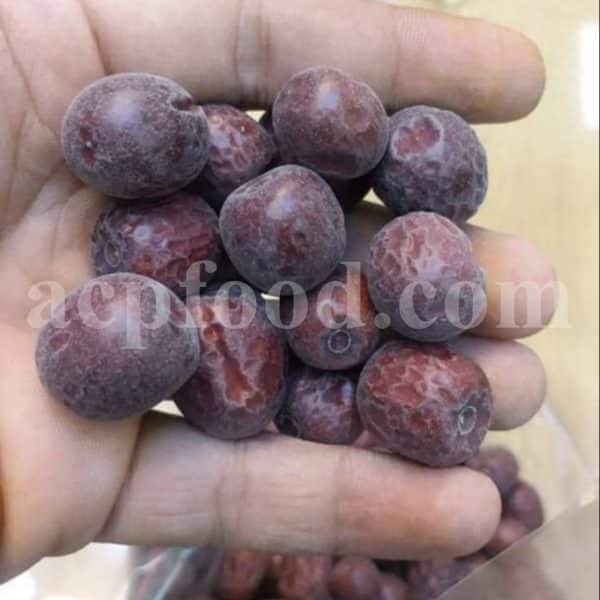
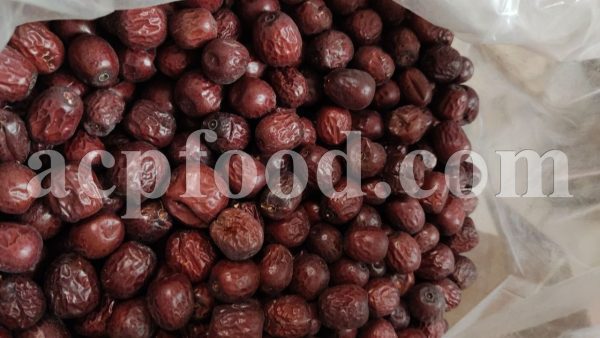
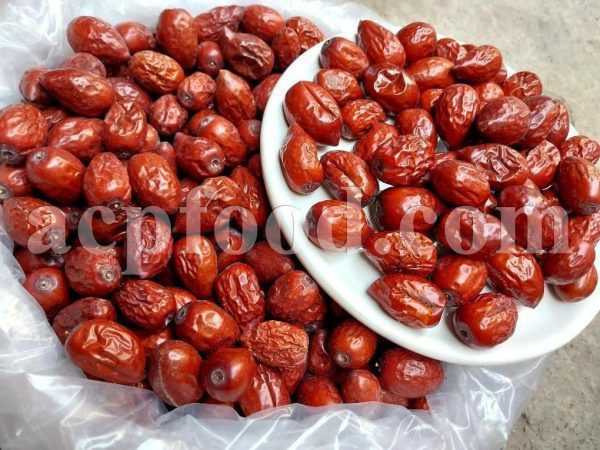
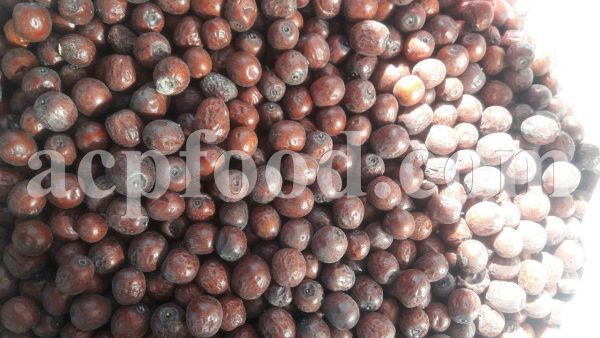
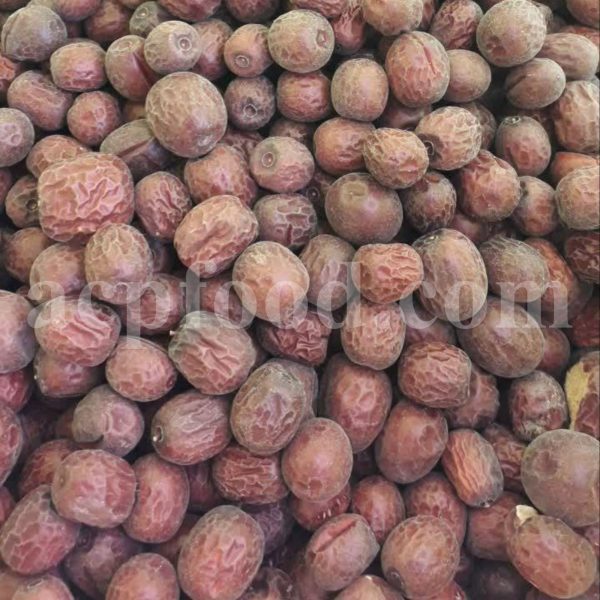
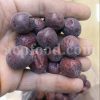
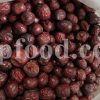
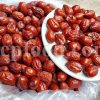
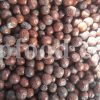
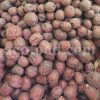
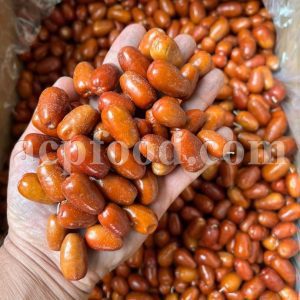
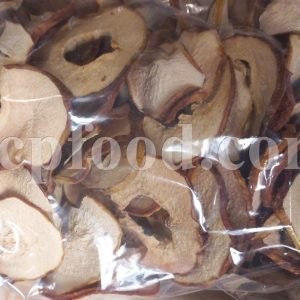
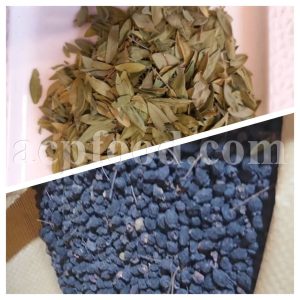
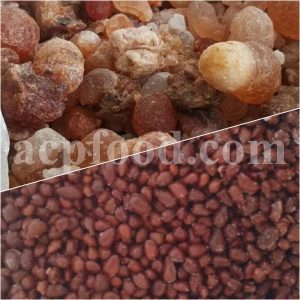
Reviews
There are no reviews yet.